Can Melatonin Help with Jet Lag?
Melatonin is a well-known dietary supplement that was said to quell jet lag and treat insomnia. It has also been known to help with other things also such as anxiety, fatigue, headaches, tinnitus, dementia, depression, bowel issues and even help keep your skin healthy from the UV rays of the sun. The wonder drug even has been said to help with cancer and heart disease, many different aging signs and symptoms of menopause. Companies have picked up on the hype and have come out with Dream Water and iChill that was developed to help with relaxation. If anything is said to help with all of these ailments is probably something that is too good to be true.
Melatonin: Hormone Released in the Dark
 The Pineal gland is responsible for producing the melatonin hormone. Some plants that are edible also produce this hormone. It is discharged in the dark which is why they call it a “darkness hormone” which is contrary to vitamin D which is known as the “sunshine hormone”. Melatonin is blocked from being released during the day by light. Circadian rhythms are affected by melatonin and have always been utilized as a sleep aid. There is even a prescription drug called Rozerem that operates the same way as melatonin.
The Pineal gland is responsible for producing the melatonin hormone. Some plants that are edible also produce this hormone. It is discharged in the dark which is why they call it a “darkness hormone” which is contrary to vitamin D which is known as the “sunshine hormone”. Melatonin is blocked from being released during the day by light. Circadian rhythms are affected by melatonin and have always been utilized as a sleep aid. There is even a prescription drug called Rozerem that operates the same way as melatonin.
Recent studies have shown in lab animals that is hormone has anti-inflammatory, antioxidant, anti-cancer and immunological effects. Just because it works on lab animals doesn’t necessarily mean it may extend to living human beings.
Melatonin Production is Affected by Aging
As we age, melatonin production begins to decline. Some scientists have advocated that come changes in our body because of age may have some connection with a decrease in melatonin. Many money-making companies use the same pretense that melatonin is needed since it is decreasing as we age just like drug replacement estrogen therapy but this hasn’t been proven. There are many different compounds that decline as we get older but that doesn’t necessarily mean if they get replaced we will feel better.
Some of the Melatonin effects are well supported
 Cochrane Collaboration, in 2009, concluded that taking melatonin as a supplement can reduce or prevent jet lag. Some of the studies performed didn’t perform the same positive results. The supplement does seem to be safe if used for a short period of time and is recommended for use by adults that are travelling through five time zones or more and preferably towards the east. Natural Standards is a company that analyses alternative treatments also found convincing evidence of using melatonin as suggested. It has also found evidence for treatment in elderly patients for insomnia as well as helping healthy people sleep. There is inconclusive evidence that melatonin helps in any other capacity suggested.
Cochrane Collaboration, in 2009, concluded that taking melatonin as a supplement can reduce or prevent jet lag. Some of the studies performed didn’t perform the same positive results. The supplement does seem to be safe if used for a short period of time and is recommended for use by adults that are travelling through five time zones or more and preferably towards the east. Natural Standards is a company that analyses alternative treatments also found convincing evidence of using melatonin as suggested. It has also found evidence for treatment in elderly patients for insomnia as well as helping healthy people sleep. There is inconclusive evidence that melatonin helps in any other capacity suggested.
What effects does Melatonin have on sleep?
• Melatonin may produce drowsiness or a “hangover” like effect the following day which may prove dangerous if you operate heavy machinery or are driving.
• There is no definite dosage recommendation for melatonin. It is different with every person so it has to be tried on an individual basis to see what amount works best for them.
• You can get melatonin in bananas, rice, grapes and cherries but there is no evidence as to how much has to be eaten to get any kind of beneficial effect.
Prior to Taking Melatonin
• Use only occasionally when needed for insomnia or jet lag
• Consult your physician if you experience chronic insomnia
• Do not use this supplement for any reason other than matters relating to sleep

 Subscribe Now
Subscribe Now

 When you do take water, try to take little amounts at a time but more frequently. Constantly drink small amounts of water throughout your flight. Don’t wait until the flight is over and then guzzle a whole bottle of water because that won’t help. Also if you drink so much water that you feel full, that isn’t good either and you may end up not eating properly which will only aggravate your jet lag.
When you do take water, try to take little amounts at a time but more frequently. Constantly drink small amounts of water throughout your flight. Don’t wait until the flight is over and then guzzle a whole bottle of water because that won’t help. Also if you drink so much water that you feel full, that isn’t good either and you may end up not eating properly which will only aggravate your jet lag. Be there early – Try to arrive at your destination earlier than you need to be there. If you can get there a couple days early that would be fantastic because your jet lag will most likely be gone before you need to be focused and productive. You may think it will be worse to spend more time in a far-away location but it really is best if you can relax for a few days before your time is needed for work or business. It may also give you extra time to plan for your meeting by creating your reports or taking care of other business so your mind is clear for the important things of the day.
Be there early – Try to arrive at your destination earlier than you need to be there. If you can get there a couple days early that would be fantastic because your jet lag will most likely be gone before you need to be focused and productive. You may think it will be worse to spend more time in a far-away location but it really is best if you can relax for a few days before your time is needed for work or business. It may also give you extra time to plan for your meeting by creating your reports or taking care of other business so your mind is clear for the important things of the day.
 Make sure to get enough sleep
Make sure to get enough sleep The second is non-rapid eye movement or NREM sleep. REM sleep occurs naturally every 90 minutes to 120 minutes. One quarter of your night’s sleep is in this stage. During this stage, the brain seems to be very active and the eyes dart around in the socket, which is where this stage got its name. It is the part of the sleep cycle where dreams occur. NREM sleep makes up the other three quarters of your sleep time and comes in four stages.
The second is non-rapid eye movement or NREM sleep. REM sleep occurs naturally every 90 minutes to 120 minutes. One quarter of your night’s sleep is in this stage. During this stage, the brain seems to be very active and the eyes dart around in the socket, which is where this stage got its name. It is the part of the sleep cycle where dreams occur. NREM sleep makes up the other three quarters of your sleep time and comes in four stages.

 Narcolepsy is when the body is extremely tired during the day and that leads to napping involuntarily.
Narcolepsy is when the body is extremely tired during the day and that leads to napping involuntarily.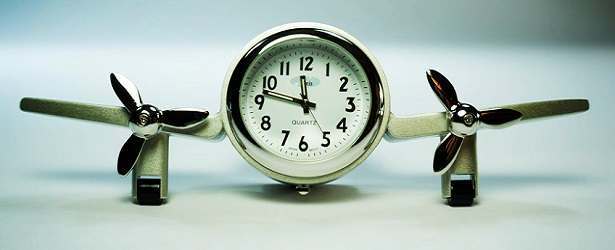
 Direction traveled has different effects on the body.
Direction traveled has different effects on the body. 1) Concentration may be clouded, confusion may show itself more than usual.
1) Concentration may be clouded, confusion may show itself more than usual.


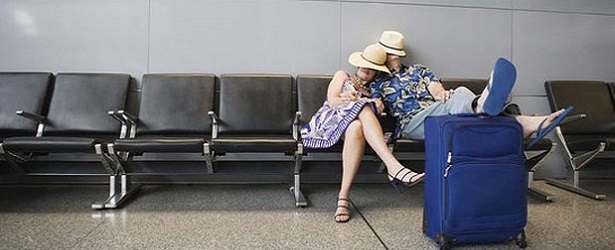
 Divers frequently travel to distant locations for diving and can be affected with jet lag for most of their travel. It also can affect the ability to safely dive; therefore they should know how to reduce the effects of jet lag.
Divers frequently travel to distant locations for diving and can be affected with jet lag for most of their travel. It also can affect the ability to safely dive; therefore they should know how to reduce the effects of jet lag.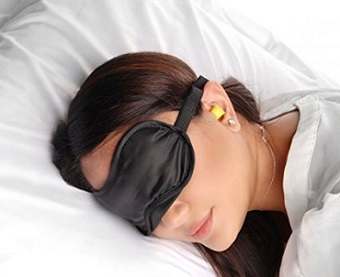 When it gets dark, your pineal gland located in your brain begins to secrete melatonin; also called the Dark Hormone. Melatonin aids the body in falling and staying asleep but it does not have the ability to do this by itself. If you are going to sleep well during flight you should avoid drinking
When it gets dark, your pineal gland located in your brain begins to secrete melatonin; also called the Dark Hormone. Melatonin aids the body in falling and staying asleep but it does not have the ability to do this by itself. If you are going to sleep well during flight you should avoid drinking 
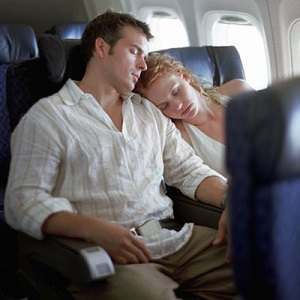 Once you disrupt the body’s circadian rhythm you disrupt your flora of your gut. When the bacteria isn’t pleasant, nobody is pleasant. But is also causes you to gain weight.
Once you disrupt the body’s circadian rhythm you disrupt your flora of your gut. When the bacteria isn’t pleasant, nobody is pleasant. But is also causes you to gain weight. 2. Drink lots of water. Drink as much water as you can so you can stay well hydrated while on the airplane. Don’t eat much and try to eat frequently so your digestive tract will keep moving and not be overtaxed. Try to take small naps. Also get your flu shot if it’s the proper time of the year.
2. Drink lots of water. Drink as much water as you can so you can stay well hydrated while on the airplane. Don’t eat much and try to eat frequently so your digestive tract will keep moving and not be overtaxed. Try to take small naps. Also get your flu shot if it’s the proper time of the year.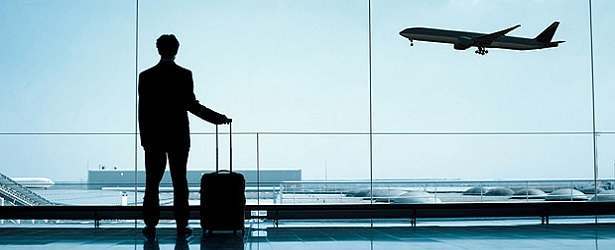
 Actually, there are a few things that can be done to help conquer jet lag. Six tips are here that you can try for controlling jet lag naturally.
Actually, there are a few things that can be done to help conquer jet lag. Six tips are here that you can try for controlling jet lag naturally. 4. Go outdoors- In order for your body to adjust with a new time period, you should get out first thing for some sun. Sunlight has an effect on your internal sleep cycle so if you should get as much sunlight as you can.
4. Go outdoors- In order for your body to adjust with a new time period, you should get out first thing for some sun. Sunlight has an effect on your internal sleep cycle so if you should get as much sunlight as you can.
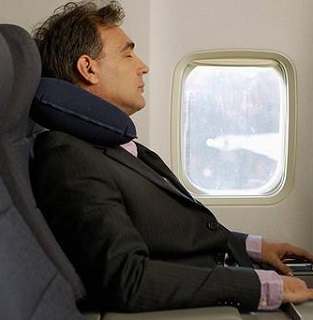 1. If you are a person with a rigid schedule you need to change your eating and sleeping habits prior to traveling. Try to be more flexible a few weeks before your expected date of departure.
1. If you are a person with a rigid schedule you need to change your eating and sleeping habits prior to traveling. Try to be more flexible a few weeks before your expected date of departure. 9. Set your clocks and watches to your new destination time once you arrive at the airport. This will begin to mentally prepare you for your new time zone.
9. Set your clocks and watches to your new destination time once you arrive at the airport. This will begin to mentally prepare you for your new time zone.